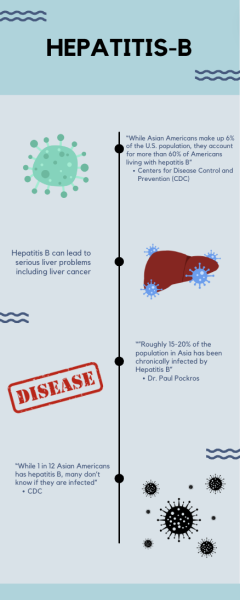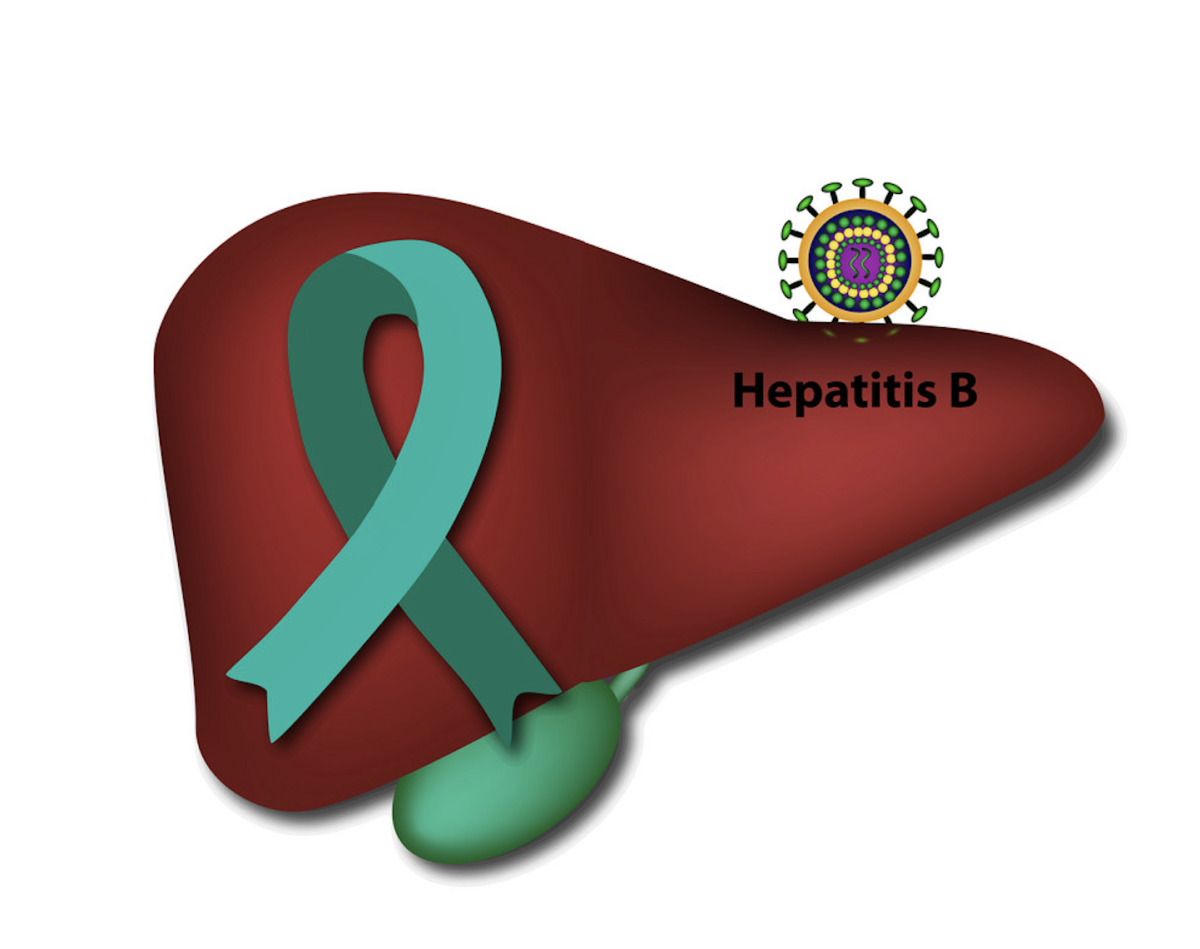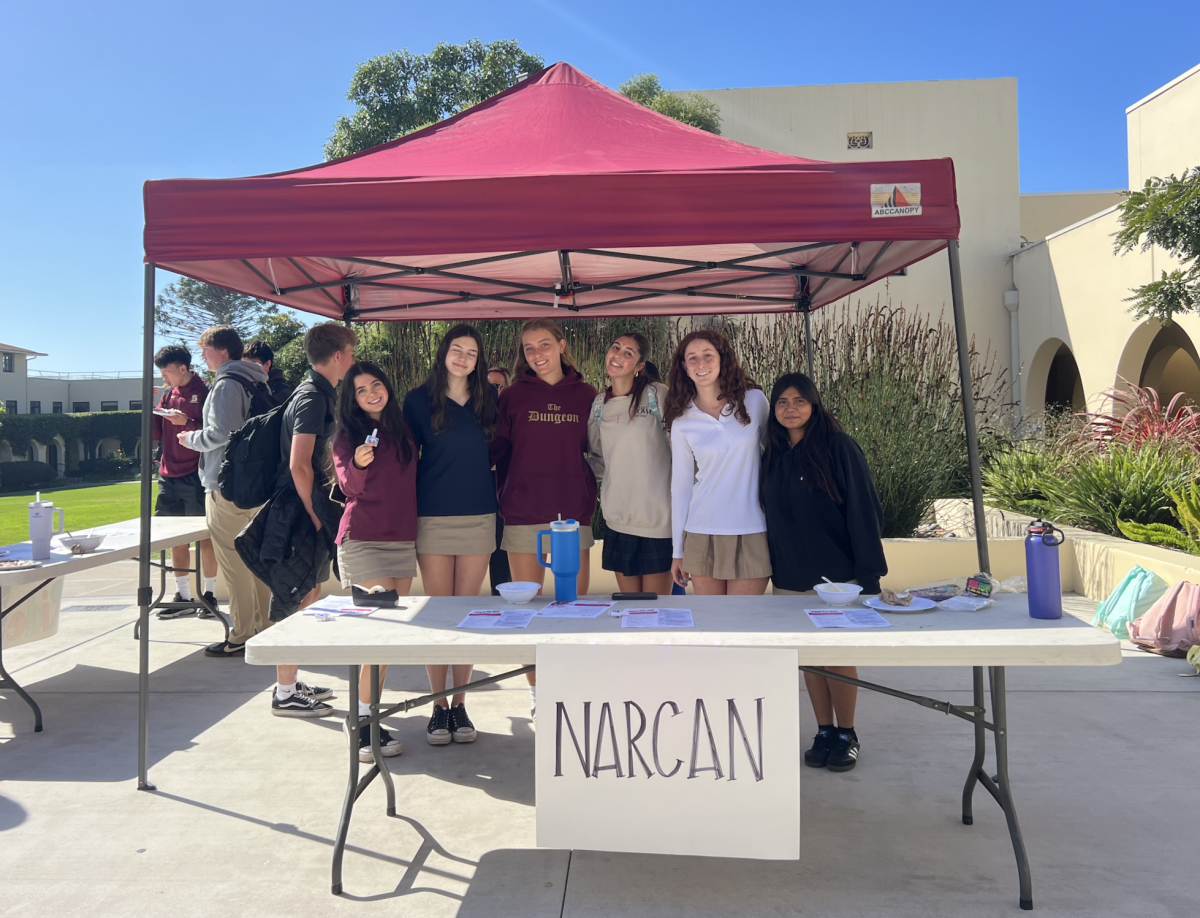
There is a disease that is asymptomatic and deadly. It has revealed itself to be more prevalent in Asian communities, killing around 210,000 Asians per year. It’s name is Hepatitis B.
A big fraction of the Bishop’s student population is Asian, 29%, according to Director of Diversity, Equity, Inclusion, and Justice Ms. Valissa Thomas. This disease can affect many students and their families in our community.
Hepatitis B is a liver infection, or the inflammation of the liver, caused by the Hepatitis B virus. It is spread through shared needles or bodily fluids, such as blood. Hep-B is “a DNA virus that has been around for many, many centuries,” said Dr. Paul Pockros, director of the liver disease center at Scripps Clinic. “It can become chronic,” he continued, “primarily in very young people.”
According to the World Health Organization, thousands of people die each year from hep B because, if left untreated, it can lead to liver cancer (hepatocellular carcinoma), cirrhosis, liver failure, and death. What makes this disease so dangerous is that it is asymptomatic, meaning many people may not notice they have it until it is too late.
Unfortunately, Hepatitis B affects the Asian population disproportionately compared to any other race. In addition, Asian Americans account for more that 60% of Americans living with hep-B, while only making up 6% of America’s population. Even worse, only 25% of these 60% are diagnosed, making it a significantly underdiagnosed disease.
“The reason it is important is because, in certain populations in the world, it has been endemic for many years,” Dr. Pockros said, “roughly 15-20% of the population in Asia has been chronically infected by Hepatitis B.” He also said, “I see a lot of patients with Hepatitis B. Most of them are Asian.” An endemic is a disease spread through a specific group of people, in this case, Asians.
He explained that this happened mostly because of vertical transmission where a mother infected with the virus transmits the disease to her baby. When the mother passes the disease onto her child, her child is at a higher risk of becoming a chronic carrier of this virus. Most often, pregnant moms do not know they have Hepatitis B as it is not routinely checked in all countries and mostly asymptomatic in adults.
This is most prominent in Asian immigrant families who came to America at a young age and were never screened, tested or vaccinated. “They immigrated to the United States or their parents immigrated to the United States,” said Dr. Pockros. Many of these immigrants may have the disease[and], without knowing, subsequently passing the infection onto their children.
The infection was endemic in Asian countries and communities because there was no effective screening or universal precaution observed until the late 1980’s and early 1990’s. An effective and safe vaccine was introduced 32 years ago, according to Dr. Pockros, given in three doses to prevent Hepatitis B. Now, it is given to every baby when they are born. “That has prevented the infection largely in young populations in the United States,” he said.
Another system, according to Dr. Pockros, that was established due to the hep-B endemic, was that “all mothers that have become pregnant, by law in California, have to be tested for Hepatitis B, in their first or second trimester.” If they end up testing positive, steps are taken to reduce the risk of vertical transmission from mother to baby.
Antiviral therapy is one way to do this. Antiviral therapy is a medication designed to decrease replication of active hep-B viruses. It is similar to antibiotics, where medication is taken to get rid of bacteria. Pregnant mothers are sometimes prescribed this medication after the first trimester to decrease the risk of vertical transmission.
“There is also a passive vaccine called Hepatitis B Immunoglobulin (HBIG) and that’s given to the infant within 12 hours of birth to prevent the development of Hepatitis B,” Dr. Pockros said. This therapy provides antibodies for the disease and it works with the body to fight it off.
For newly diagnosed people, antiviral therapy is a very safe and effective option to decrease disease progression, prevention of cirrhosis, and liver cancer. However, this is not a cure, as there are no curative treatments currently available for Hepatitis B. Once treatment is started, patients will need to be on antiviral therapy for life, but, based on the rapid medical advancement right now, there will hopefully be one in the near future.
According to Dr. Pockros, most people who were vaccinated against hep-B when they were young do not need to get tested at all. However, he said, “as an adult, you would get tested if there was a reason to.” Some reasons include having a viral Hepatitis illness or abnormal liver test results.
If your family has immigrated to the United States without a vaccination against Hepatitis B, you may want to talk to your family about getting tested because there are reliable treatments available to prevent hep-B positive people from developing further complications.









